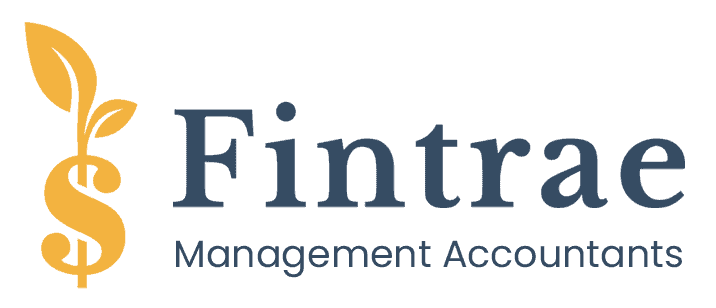Choosing the best bookkeeping service for small business starts with understanding your unique needs, such as transaction volume and the type of financial tasks you require. Look for service providers with experience in your industry, since they will better grasp specific challenges and compliance rules.
Communication matters a lot; make sure they offer clear, regular updates and are easy to reach when questions come up. It’s also important to check what software they use, services familiar with tools like QuickBooks or Xero can improve accuracy and efficiency. Finally, review pricing carefully and read client testimonials to find a trustworthy partner who can grow with your business over time.
Assess Your Small Business Bookkeeping Needs
Start by looking at the size of your business and how many transactions you process regularly. A solo entrepreneur with a few sales a week needs a different setup than a company managing daily invoices, payroll, and expense tracking.
Make a list of the specific tasks you need help with. This could include data entry, invoicing, payroll, or managing accounts payable and receivable. Be honest about what you want to delegate.
Think about whether regular financial reports or cash flow forecasts would help you plan ahead. If your business falls under a specific industry like construction or E-commerce, consider whether your bookkeeper needs experience with that industry’s rules.
Decide if you only need basic bookkeeping or if you’d benefit from added services like budgeting or financial analysis. Also consider how frequently you want updates. Some businesses need daily bookkeeping, while others manage just fine with weekly or monthly reviews.
Finally, check whether your bookkeeping should integrate with your existing software or payment systems, and clarify what you expect in terms of accuracy and turnaround times. Getting this all down will help you find the right fit.
Choose a Bookkeeping Service with Industry Experience

The right bookkeeper should understand the financial details unique to your industry. Whether it’s managing inventory for retail or tracking billable hours in professional services, experience matters.
Ask how familiar they are with industry-specific tax rules and compliance requirements. It helps to know if they’ve handled businesses similar in size and complexity to yours. Make sure they’re comfortable with the platforms and tools you already use. Smooth data flow leads to better reporting and fewer errors.
You can also ask for examples of how they’ve solved challenges in your field or helped clients make the most of industry-specific deductions. If your business is seasonal or has fluctuating cash flow, find out if they can adjust their approach to match. Look for a bookkeeper who offers some basic financial insights, not just data entry.
Evaluate Communication Style and Availability
Good communication is important for bookkeeping service. Ask how they prefer to stay in touch; whether through email, phone, messaging apps, or video calls, and make sure it lines up with what works for you.
Find out how often they provide updates or reports. Some businesses need monthly reviews, while others might require more frequent check-ins during busy times. Ask if you’ll have a dedicated point of contact and how quickly they respond to questions, especially during crunch periods.
Clarity is key. A good bookkeeper should explain things without jargon, so you understand your numbers. Some also train your team on tools and processes, which can be useful if you’re building in-house skills. Make sure they use modern, secure software for file sharing and communication. Cloud-based platforms with real-time updates are a plus.
Check What Software the Bookkeeper Uses
When choosing a bookkeeping service, it’s important to find out which software they use. Many bookkeepers specialize in popular cloud-based platforms like QuickBooks Online, Xero, Sage, or Zoho Books. These tools not only keep your financial data organized but often integrate smoothly with other business systems you may already use, such as payment processors or your CRM.
Make sure you can access your financial data in real time and that your accountant can log in too. This makes collaboration much easier. Ask how they protect your data. Encryption, backups, and user controls are all important.
If you or your staff need help learning the software, ask if they offer training. Also, consider whether the software can grow with your business as you scale up. Choosing a bookkeeper who knows your tools helps things run smoothly from day one.
Find a Service That Works with Your Tax Advisor

When choosing a bookkeeping service, finding one that works closely with your tax advisor is key to keeping your finances in order. Make sure your bookkeeper regularly communicates with your CPA or tax preparer to keep everyone on the same page. Ask if they prepare financial statements that align with your tax reporting needs, so your tax filings are accurate and hassle-free.
It’s important that the bookkeeper understands tax codes and deductions specific to your industry, as this knowledge can uncover savings and reduce your tax burden. Confirm they can provide audit-ready records and assist with year-end closing processes to ease the pressure during tax season.
Also, check how they handle adjustments or corrections that your tax advisor suggests, ensuring your books stay clean and compliant. Timely reporting is another must-have, so your tax deadlines are never missed. Lastly, find out if they stay updated on tax law changes and whether they’re comfortable working within your tax advisor’s preferred software or formats. This collaboration can save time, reduce errors, and help you take full advantage of tax-saving opportunities.
Compare Pricing Models and Stay Within Budget

Not all pricing models are the same. Some bookkeepers charge hourly, others offer flat monthly rates or charge based on transaction volume. Ask about setup fees, software costs, or anything else that might not be included in the base price. Always request a detailed quote.
Compare the cost against what services are offered and how often. Make sure the plan fits your current needs and can grow with you. Low prices can be tempting, but be careful. Poor service can cost you more in the long run.
Ask about cancellation policies and whether consultations or advice are included. Some providers offer discounts for bundled services or long-term contracts. Getting this part right helps you stay on budget while ensuring reliable support for your business finances.
| Pricing Model | Key Features | Pros | Cons |
| Hourly Rate | Charges based on number of hours worked | Flexible for varied workload; pay only for time used | Can be unpredictable; may get expensive with high hours |
| Monthly Flat-Rate | Fixed monthly fee regardless of workload | Easy budgeting; predictable cost | May pay for unused services; less flexible |
| Transaction-Based | Cost depends on number of transactions processed | Scales with business activity; pay only for what you use | Can get costly with high transaction volumes |
| Additional Fees | Setup costs, software licenses, or hidden charges | Transparent costing if disclosed properly | Unexpected fees can increase total cost |
| Discounts & Bundles | Lower prices for long-term contracts or package deals | Savings on combined services; incentivizes loyalty | May have commitment requirements; less flexibility |
| Consultations Included | Includes financial advice or consults in price | Extra value for business strategy support | Might increase overall cost; not all services offer this |
| Switching Costs | Potential fees or time investment to change providers | Important to consider for future flexibility | Can be costly or disruptive if planning to switch later |
Read Reviews and Ask for Client References
Checking reviews on trusted websites and social media platforms is a great first step when choosing a bookkeeping service. These reviews offer real insights from other small business owners about their experiences. Beyond online feedback, ask the bookkeeping service for client references, ideally from businesses in your industry or with similar needs.
Focus on key areas like reliability, professionalism, and communication. Find out if the bookkeeper delivers timely and accurate services, and how they handle problems or errors when they arise. It’s also important to learn whether clients feel the bookkeeper adds value beyond just entering data, like offering helpful advice or spotting opportunities. Pay attention to comments about their software skills and responsiveness, since these impact daily interactions.
Testimonials that mention smooth collaboration with tax professionals can indicate a service that helps keep your financial processes aligned. Finally, check if clients are satisfied with pricing and the overall experience, and watch for any recurring complaints or red flags in reviews. This thorough approach helps ensure you pick a bookkeeping partner you can trust and grow with.
Find the Right Bookkeeping Partner for Long-Term Success

Choosing the right bookkeeping service isn’t just about crunching numbers, it’s about finding a reliable partner who understands your business and supports your long-term goals. When you know what your business needs, it’s easier to spot the service that fits. Look for experience, responsiveness, industry familiarity, and the ability to scale as you grow.
Fintrae International LLC checks all these boxes. Their remote-first setup, industry know-how, and focus on practical, tailored financial support make them a smart choice for small businesses ready to take control of their finances.
Ready to simplify your bookkeeping and gain real financial clarity? Reach out to Fintrae International LLC today for a free consultation and discover how they can help your business stay organized, tax-ready, and ready to grow.
Frequently Asked Questions
1. What key skills should I look for in a bookkeeping service for my small business?
Look for a bookkeeping service that has a strong grasp of accounting principles, attention to detail, and familiarity with small business financial needs. They should also be good with numbers, organized, and able to use common accounting software.
2. How can I tell if a bookkeeping service understands the specific needs of my industry?
Ask about their experience working with businesses in your industry. A good bookkeeping service will know the typical expenses, revenue types, and compliance requirements relevant to your field, which helps them manage your books more accurately.
3. What role does technology play in choosing the right bookkeeping service?
Technology can make bookkeeping faster and more accurate. Check if they use up-to-date software that syncs with your business systems, offers reporting features, and keeps your data secure. This can save you time and reduce errors.
4. How important is communication when working with a bookkeeping service?
Communication is very important. Your bookkeeper should be easy to reach, clear in explaining financial information, and proactive in alerting you to any issues or opportunities. Good communication helps you stay informed and make better decisions.
5. Can a bookkeeping service help me prepare for tax season even if they don’t file taxes?
Yes, a bookkeeping service can organize and track your financial records throughout the year, making tax season less stressful. They provide clean, accurate data that your tax professional can use to file your taxes correctly.




